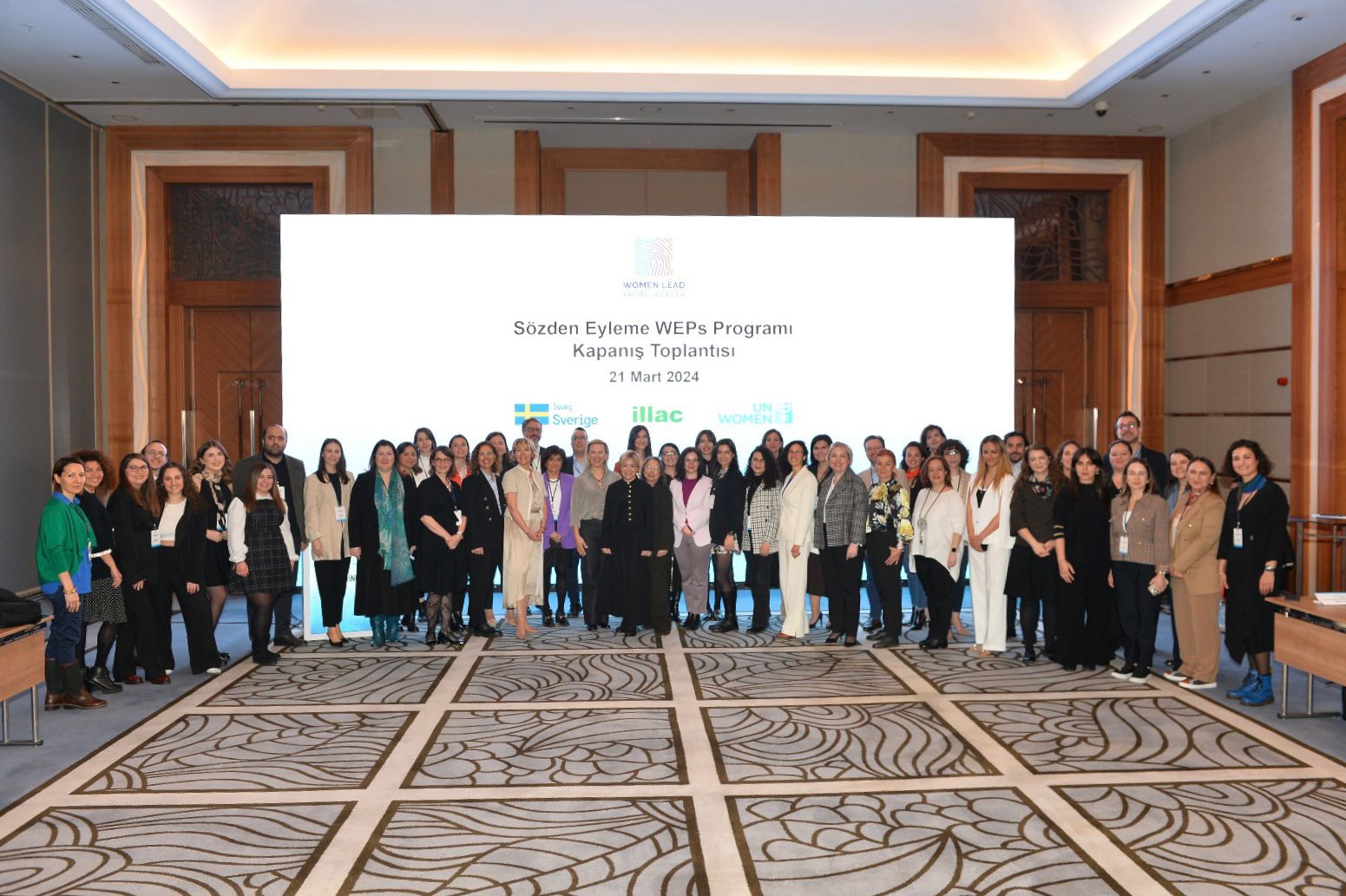Women’s Empowerment Principles in Action: Driving Change in Türkiye's Private Sector
Date:

Ranking second globally, Türkiye’s private sector demonstrates leadership with 565 companies as signatories to the Women’s Empowerment Principles (WEPs) as of May 2024. The "WEPs in Action" (Sözden Eyleme WEPs) Programme emerged from the understanding that despite the high number of signatories, more needed to be done to deepen the implementation of WEPs within and beyond the signatory companies.
After a rigorous selection process, incorporating a wide range of criteria to ensure diversity across sectors, geographic locations, governance structures, and levels of WEPs experience, 10 companies were chosen for the “WEPs in Action” programme and paired with consultants to undergo an intensive two-month WEPs implementation phase. The processes allowed UN Women to assess the WEPs implementation levels, identify gaps and opportunities, and formulate a way forward.
The ten participating companies —Anadolu Sigorta, Arçelik Global, Enerjisa, HepsiBurada, Inci Holding, Mavi, Migros, Şişecam, Türk Traktör, and Yeşilova Holding—along with four WEPs Allies—Boyner Group, Unilever, Yeşim Group, and Yıldız Holding—successfully completed the programme.. A closure meeting was held on March 21st in Istanbul, featuring senior executives, Prof. Melsa Ararat, the Managing Director of Illac and her team. The companies received certificates of participation, shared insights from their WEPs implementation experience, celebrated achievements, and exchanged valuable feedback.
UN Women Türkiye Country Director Asya Varbanova highlighted, "The private sector's concrete, long-term, and ambitious actions towards implementing WEPs demonstrate how genuine commitment can lead to transformative outcomes. We extend our gratitude to all participating companies and WEPs Allies for their crucial role in deepening the WEPs implementation both within and beyond their organizations. We encourage more companies to not only sign but also rigorously implement the WEPs."
Prof. Melsa Ararat, added, “The WEPS in Action Project is realised to ensure that the principles are not just words on paper. The Project focused on designing a centre of excellence as a hub of expertise, knowledge, and resources, advocating, and supporting the integration of the WEPs into business strategy, policies, and practices. The implementation guide and tools developed by the project team were tested at ten selected companies. Once implemented, the WEPs Center of Excellence will provide signatories with the information, tools, and consultancy services they need, facilitate mutual learning, and enable benchmarking, thus accelerating women's empowerment in the workplace and society.”
A key takeaway from the WEPs in Action Programme is Türkiye’s success in encouraging companies to sign the WEPs. However, fully integrating these principles into company practices remains a challenge. Streamlining this process will require distilling experiences, standardizing best practices, and offering tailored service packages, potentially under UN Women's supervision. Contributions from Turkish companies will be vital in developing globally relevant models.
UN Women strives to ensure all women achieve income security, decent work, and economic power and autonomy. In partnership with various stakeholders, we conduct economic empowerment programs globally, regionally, and nationally. We sincerely thank all our program companies that have their roots in Türkiye and WEPs Allies for their invaluable contributions to advancing a deeper WEPs implementation.
WEPs in Action Programme was implemented within the scope of the "Advancing Gender Equality and Women's Leadership in Political and Business Life Project" financed by Sweden through the Swedish International Development Cooperation Agency (SIDA).